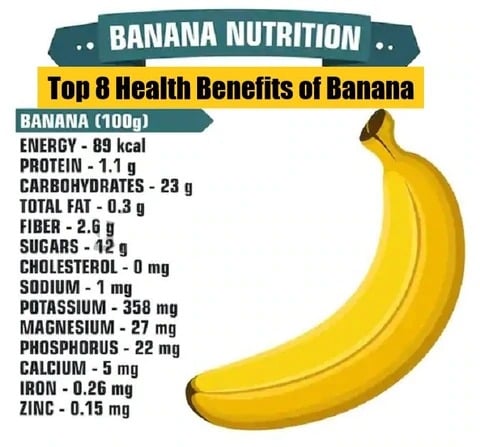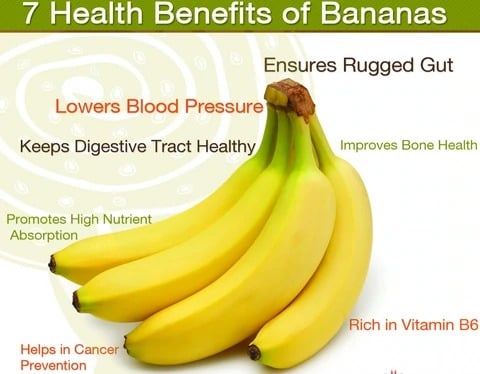Banana Nutrition & Health Facts
Bananas aren’t just one of the most versatile, delicious fruits, they’re also one of the most nutritious. Though they're typically grown in tropical climates near the equator, bananas are exported to many countries around the world. They contain many essential vitamins and nutrients and have been shown to benefit digestion, heart health, and weight loss. No wonder then they’re one of the world’s most popular fruits! Let's take a look at what's behind the peel.

Bananas hold very little protein (1.3 grams) and almost no fat (0.4 grams); in fact, they consist almost exclusively of water and carbs (and contain only around 105 calories). They’re rich in pectin, a type of fiber, and as bananas ripen, the starch they contain turns to sugar (glucose, fructose, and sucrose). Yet they rank fairly low on the glycemic index (GI), which is a measure — from 0–100 — of how quickly foods increase blood sugar levels (the GI value of unripe bananas is about 30; ripe bananas rank around 60).

A medium-sized banana will provide a fair amount of the Recommended Daily Intake (RDI) of several essential vitamins and nutrients - 9% of potassium, 11% of vitamin C, 33% of vitamin B6, and 14% of magnesium. It also has high levels of vitamin B12, and contains several types of potent antioxidants, such as dopamine and catechins, which are linked to a reduced risk of heart disease and degenerative illnesses.
And that potassium? That can help lower blood pressure, lower the risk of heart disease, and improve kidney function. You can enjoy bananas on their own, dehydrated into snackable chips, mixed into baked goods, blended into smoothies, and even pureed and frozen as a reduced sugar, dairy-free alternative to ice cream! So go ahead - start adding bananas to your diet today! Your health and your tastebuds will be glad you did!

